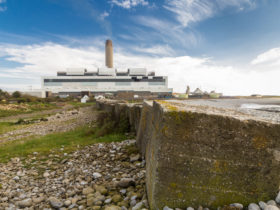Business owners in Wales are being urged to consider employee ownership as a progressive approach to succession planning after it was revealed that employee ownership is the fastest growing form of business ownership in the UK.
[aoa id=”1″]The call to arms comes from the Think Employee Ownership campaign which is being delivered by Social Business Wales to raise awareness of employee ownership as an attractive and viable business succession planning option. Between 2010 and 2017 the sector in the UK grew by 60% and in 2012 its value to the Welsh economy was already £1bn. The Employee Ownership Index has outperformed the FTSE All Share in 10 out of 13 years by an average of 14 % per annum and research by the Employee Ownership Association (EOA) suggests that there is a growing appetite from businesses for more innovative and viable succession solutions.[/aoa]
Two businesses which have transferred to employee ownership in the last year are Aardman Productions, best known in Wales as the creator of Shaun the Sheep, and Cwmni Da, the Caernarfon based TV company which has produced many hit shows for S4C, including Noson Llawen and Fferm Ffactor, and is supporting the Welsh campaign.
David Sproxton, co-founder of Aardman, which last year transferred to Employee Ownership, said:
“I wholeheartedly encourage Welsh businesses to see Employee Ownership as a real succession solution. Employee owned companies have been shown to be more successful than other more conventionally structured companies, so we felt this was the right way to ensure the future success of the studio, and to futureproof the creativity of the company and its team for decades to come, and for team members to share in the benefits they create.”
Sproxton and his co-founders continue to work at the company for now, but reporting to the trust.
Dylan Huws, Managing Director of Cwmni Da, is also encouraging companies in Wales who are considering succession planning to ‘Think Employee Ownership’. Mr Huws transferred his business into employee ownership in October last year saying: “Creating an employee-owned company feels like it is a perfect fit because I believe passionately that the staff are a key part of the business.”
Productivity in employee owned companies has increased by 7.3% per year, compared with the UK economy as a whole which is flat, according to EO research. In addition, 41% of people are more likely to buy from a company that is employee owned and 58% believe that employee owned companies are more trustworthy. Other well-known employee owned businesses include John Lewis, Wilkin and Sons who make Tiptree Jam, Gore-Tex and Richer Sounds.
Glenn Bowen, Director of Enterprise at the Wales Co-operative Centre said:
“Employee Ownership is a concept which is gaining momentum across the UK, the benefit for Wales being that employee ownership is a succession option which helps keep jobs and wealth in the community for the long-term, and it also creates higher levels of staff wellbeing and productivity. We run the Social Business Wales project, which is behind the Think Employee Ownership campaign, and we would encourage anyone in Wales who thinks this approach might be for them, to get in touch.”
He continued: “With high-profile businesses like Aardman and Cwmni Da speaking out about the benefits of employee ownership, we hope more Welsh businesses will think about it as a realistic alternative to conventional exit plans. Free support is available from Social Business Wales to help companies consider the different legal structures, but the Think Employee Ownership Campaign is also targeting solicitors and accountants, to help educate them as to the benefits of EO.”







Leave a Reply
View Comments